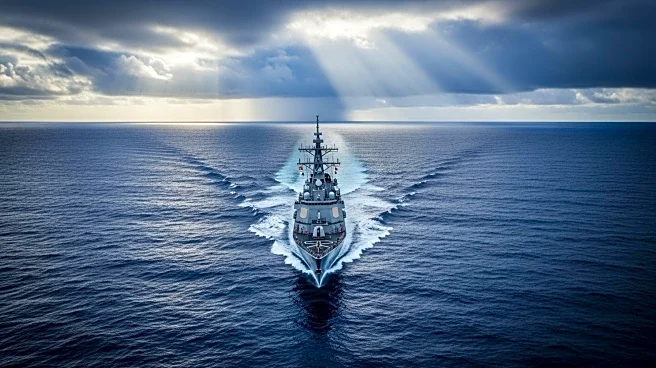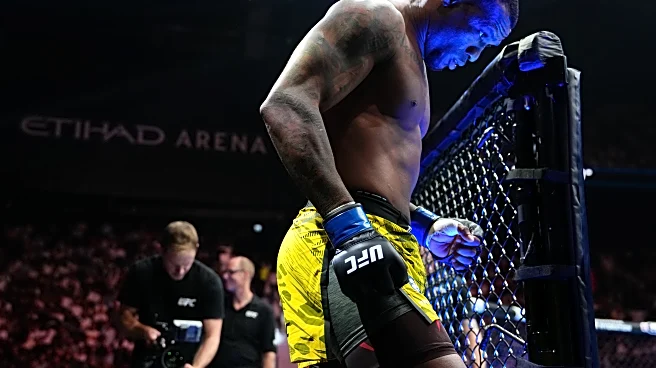What's Happening?
The United States and its allies are facing increasing challenges from the People's Republic of China (PRC) in the South Pacific region. The PRC is employing a strategy of maritime insurgency, which involves economic inducements, political influence, and maritime coercion to erode U.S. and allied presence. This strategy is not limited to military force but includes blurring legal boundaries and exploiting economic vulnerabilities. The PRC's activities, such as illegal, unreported, and unregulated fishing (IUUF), are particularly acute in the South Pacific, where Chinese fishing fleets exploit the limited enforcement capacity of Pacific Island Countries (PICs). The region is strategically significant, connecting U.S. treaty allies and housing key U.S. territories. Despite traditional security partnerships with the U.S., Australia, and New Zealand, the PRC has expanded its influence through infrastructure projects and security arrangements.
Why It's Important?
The PRC's growing influence in the South Pacific poses a significant threat to regional stability and U.S. interests. The construction of Chinese-funded infrastructure in strategic locations like the Solomon Islands and Kiribati could enable the deployment of military assets that threaten U.S. territories and allies. This shift in influence challenges the U.S.'s ability to maintain freedom of navigation and regional deterrence. The economic impact of IUUF on PIC economies further exacerbates their dependency on international aid, undermining governance and sovereignty. The U.S. and its allies must enhance their presence and cooperation in the region to counter these threats and support local enforcement capabilities.
What's Next?
To address these challenges, the U.S. plans to increase its regional naval presence and support the Pacific Fusion Center, which enhances intelligence sharing and regional coordination. The U.S. Coast Guard is expected to play a crucial role in deterring illegal activities and supporting local law enforcement. Additionally, the U.S. aims to expand humanitarian assistance through the Pacific Partnership missions, providing medical support and enhancing soft power. Legal and political measures to hold PRC officials accountable for illegal activities are also being considered to deter further violations.
Beyond the Headlines
The strategic competition in the South Pacific highlights broader geopolitical tensions between the U.S. and China. The U.S. must balance its efforts to counter PRC influence with empowering Pacific Island Countries and promoting regional ownership. This approach aims to avoid perceptions of neocolonial influence while reaffirming the U.S.'s commitment to a free and open Indo-Pacific region.









